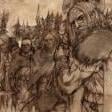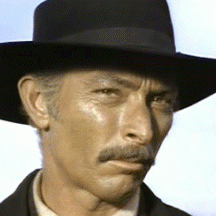
SFDanny
Members-
Posts
4,412 -
Joined
-
Last visited
Profile Information
-
Location
San Francisco
Recent Profile Visitors
12,397 profile views
SFDanny's Achievements

Council Member (8/8)
-
 Kal-L reacted to a post in a topic:
R + L = J v.167
Kal-L reacted to a post in a topic:
R + L = J v.167
-
 Kal-L reacted to a post in a topic:
R + L = J v.167
Kal-L reacted to a post in a topic:
R + L = J v.167
-
 Kal-L reacted to a post in a topic:
R + L = J v.167
Kal-L reacted to a post in a topic:
R + L = J v.167
-
 Ran reacted to a post in a topic:
GRRM Updates Fans on Multiple Projects
Ran reacted to a post in a topic:
GRRM Updates Fans on Multiple Projects
-
 The Bard of Banefort reacted to a post in a topic:
GRRM Updates Fans on Multiple Projects
The Bard of Banefort reacted to a post in a topic:
GRRM Updates Fans on Multiple Projects
-
As an aspiring completist of all things Elio and Linda, and of course that Martin fellow, I'm in. I loved Fire & Blood and will happily buy this new book for the artwork alone even if there is nothing else new.
-
Lyanna is a girl of fourteen to sixteen years old when the events from the time of the Harrenhal tourney to her likely death at the Tower of Joy. She is member of an aristocratic family in which her role is rigidly defined. Yet the Lyanna we know is a young woman who rebels against that role time and time again. Think of her battle with the squires over their treatment of Howland Reed, the possibility she rides in the tourney as the Knight of the Laughing Tree, and her remarks about Robert's nature to Ned. Which is also consistent with the "wild" northern girl who rides like a centaur and trains in skills decidedly not approved by her father or much of Westerosi society. This is a portrait of a young woman fighting for her own way in her world, not just a tool of others. I call that "agency." That is even more so if, as I think is likely, Lyanna herself plays a role in her "kidnapping" or escape from an impending marriage to a man she wants no part of.
-
While I think I agree with most of this, I think it is also worth taking a closer look at the usage of the word "kidnapping" in the Westerosi context. "Theft" might be the more appropriate term when used concerning Rhaegar's actions. Combined with "rebellion" by Lyanna and I think we get closer to the cause of the outrage that follows Rhaegar and Lyanna running off together. It not really a question of whether or not Lyanna is a victim in most people's eyes, but rather the damage done to her House, by both Lyanna and Rhaegar that is in question. The damage done to Lord Rickard's "rights," and Aerys's rights as well. Nor does Lyanna's age really much enter into it. We see many marriages by children younger than she was and no one bats an eye at them. Btw we don't know her age when the "kidnapping" takes place. Children become adults at sixteen, but they are not really free to marry whomever they wish afterwards. Perhaps in a strictly legal sense, but in every other way the custom dictates children follow the dictates of their fathers. The repercussion of not following those dictates range from Tyrion and Tysha's example at the worst, to fatherly acceptance depending on the individuals.
-
I've always considered the real reason Rhaenyra is not considered a Queen is simply that the politics of Westeros after the Dance was such that many of the Lords of the Realm's views on female monarchs didn't permit her inclusion as a monarch because of the rather important precedent it would set. Most of the male nobility don't want their preference for male inheritors of their power and prerogatives messed with. Can't have those scary women upsetting the "natural" order of things. Damn the reality that Rhaenyra was crowned and ruled from the Iron Throne. She can give birth to monarchs, but she can't be counted as one in her own right, or things might get out of control. Rhaenyra's descendants acquiesce to her posthumous slight is in exchange for real power.
-
I've a question to the "completists" out there. Does anyone have a complete list of all the non-Martin story collections in which his short stories, novellas, etc. have been published? I'm particularly interested in the English language publications. The bibliography in Dreamsongs Vol.II is helpful as far as it goes, but I keep finding new anthologies that have Martin stories included in them that are not referenced there. Part of that is simply because of the publication date of Dreamsongs, but instead of trying to recreate that list myself it would be helpful to know if there is a easily accessible place for such information. Thanks Found it. All the information I needed is here
-
You wanted a short answer, so I gave you mine. Want a discussion on the topic? Probably better to start a new thread or revive an old one than do it here.
-
He should go to the Happy Port in Braavos. It's near the Ragman's harbor, and is just across from the Mummer's Ship. Ask for the Sailor's Wife or her daughter Lanna. Your mate might not make it out alive, but he will have his question answered.
-
You're right that most of this is pure speculation, and as such we shouldn't put to much stock in believing one way or another. One thing we do know is that Yoren left the Wall long before Jon takes his vows. So he can't be the source of any news to Ned that Jon is a member of the Night's Watch. I don't think we have any evidence that Ned knows that fact before he dies. Which would make it extremely unlikely that his regret is because he knows he should have told him something before Jon takes his vows. Perhaps, his knowledge that Benjen is not there to stop Jon from doing so is a factor. I'd say his regrets around Jon most likely have to do with not having an opportunity to tell Jon who his mother was, and not knowing if Benjen will ever return to tell Jon in his stead. Again, the latter is based on my guess that Benjen knows that secret. That would be a reason to write a letter to Jon, but obviously the information in it might not be something he would want Varys to read. That's especially true if Rhaegar and Lyanna are Jon's parents. Perhaps a message for Jon to seek out Howland Reed? Another guess. We obviously need more evidence here.
-
Perhaps, but we don't even know if it was the plan to allow Jon to actually take the vows. Ned needed to get Jon out of Winterfell and away from the antagonism with Catelyn, and to someone he trusted as far away as he can from King's Landing. Being at the Wall with Benjen might just have been a temporary solution. Such a interpretation would mean Benjen is in on the plan. Unfortunately, Benjen goes missing, and Ned doesn't find out about until Yoren arrives in King's Landing. Or Ned just placed Jon's safety over any ephemeral claims he might have had to the Iron Throne. Doesn't mean he wouldn't have told Jon before he joins the Night's Watch, but just that he doesn't have any belief that there is a chance Jon could ever sit the Iron Throne. His promise most likely was to just keep him safe at all cost. Something we will have to wait and see if it is ever answered. One reason I think we just might see Benjen again.
-
I would disagree. I think the larger lesson is that all perspectives and all accounts of events should be evaluated for strengths, weaknesses, and bias. What Martin has done in the very structure of his novels is to give us different perspectives to view reality. If you have ever had the pleasure of seeing the classic film Rashōmon by Akira Kurosawa then you have a guide as to how to handle what is "true" and is to be "trusted." So, for instance, when we read Ned's innermost thoughts we should note that, unless Ned is delusional, those thoughts reflect his point of view of reality. Not reality itself. It is for the reader to judge what his bias does to how reality is interpreted. Yes, second hand accounts lack the perspective of someone who was on the scene. That does not mean they have no value. When we read Viserys's point of view, as told through the filter of Daenerys's memories, we need to note that Viserys was not present at the Trident, for instance, but it is very important to also note that he is likely to have been told his stories by other Targaryen partisans, including Rhaella and Ser Willem, who may well have reason to know things Viserys doesn't . The bias is important, but the stories are as well. If nothing else, Viserys's stories to his sister tell us what is likely the loyalist's view of history. Given that we get the rebel's view of history through almost everyone else's point of view it is extremely important not to just dismiss what Viserys says. So, yes, Viserys doesn't show a knowledge of the differences between Ned Stark and Tywin Lannister on the day of the sack of King's Landing, but his view, as told through Daenerys's perspective, of Rhaegar "dying for the woman he loved" tells important information that we don't get from all the rebel view points. The Targaryen story speaks of love, not of rape, brutality, and abduction in Rhaegar's motives and actions toward Lyanna. We would be foolish to dismiss that view for bias, just to accept the other biased viewpoints as told by Robert, Ned, and others. The lesson, it seems to me, is to evaluate all the evidence as distorted by perspective to some degree, and not assume bias from only one point of view.
-
Ned was absolutely there during the sack of King's Landing. He confronts Jaime in the Red Keep as he sits upon the Iron Throne during the sack. Ned's troops come late to the sack, but they, and he, are there while it is still ongoing. So, no, not total bullshit. That the Targaryens don't make much of any differentiation between the Lannister's and the Stark's role in the sack is a important nuance in the reader's eyes, but not so much in the eyes of loyalists. Both armies were in the city and involved in the overthrow of Targaryen rule. It's not surprising that in Viserys's view they are both responsible for Aerys's death. Why should it matter to loyalists what the command structure was during the sack as long as they both were there, they both were responsible. After all, who ends up controlling the Iron Throne on that day? Stark troops do, with Ned Stark leading their way into that seat of royal power. Jaime surrenders it to them without a struggle.
-
Well, I'm glad you think it makes logical sense, because that was what I was trying to communicate. But henceforth I will try to make my arguments with a greater sense of élan, style, and panache in order to avoid that "falls flat" feeling you reference. I'm hoping words like "henceforth," "élan," and "panache" help in that regard. Let me know if they do. I understand your assertion that is so, but asserting it as fact does not make it so. Here we are talking about a particular dream while Ned is in the black cells, and there is no reference in the dream to Lyanna. You make the leap it is about Lyanna, and I do not. I think there is a different possible source, or sources, for this dream's connection fo "broken promises" and "blood" than to Lyanna. In fact the reference to "broken promises" I've shown to be in contradiction to what we know of the promises Ned made to Lyanna on her deathbed. Ned Stark led a very bloody life. Blood shed in the rebellion by his siblings, Father, friends, bannermen, and many others. That Ned might have dreams of blood related to something or someone else than Lyanna would not be surprising in the least. Or shouldn't be. Even the much mentioned dream of the events at the Tower of Joy involves more people shedding their life's blood than Lyanna. I would expect the deaths of the men betrayed by Littlefinger in the Throne Room of the Red Keep would be a cause for haunting memories and dreams for Lord Stark. It was his trust in the broken promises of Petyr Baelish around the loyalty of the City Watch that caused those deaths, and which puts Ned in the Black Cells. This is the scene in which Littlefinger tells Ned he will secure the loyalty of the City Watch. One could call that a promise by Littlefinger to Ned. And then we have the scene in the Throne Room itself. We then witness the betrayal and subsequent murder of Ned's men. First, Tomard, then Varly, and then Cayn. As the others are killed Littlefinger holds Ned's dagger under his chin and says, I would say that shows the elements of both "broken promises" and "blood." When you cite the reference Ned makes of his dreams of broken promises and blood you fail to provide a link with Lyanna. Indeed there is no reference to her in those dreams. No Lyanna mentioned in relation to those dreams. Days, maybe weeks, later Ned has a dream in the Black Cells that does reference Lyanna and blood, but not any broken promises. Actually I would suggest, as I did above, that it is about events that are plainly laid out in the books, not some hidden reasons outside the knowledge of the readers. I think I've already stated as much. We agree this is not the likely cause of the broken promises Ned alludes to. Again we agree this is a unlikely source of Ned's dreams of broken promises. Ned is disturbed in his cell when thinking of Jon, but it doesn't seem to be about promises already broken. Ned would like to talk to Jon and tell him something, and that is a possible source of future broken promises if he is unable to do so. But not ones already broken. It is absolutely NOT the "only takeaway." I've given you a entirely plausible explanation and there are others as well. Others that have nothing to do with Ned's promises to Lyanna. Let me know when you come up with any evidence that suggests Ned broke his promises he made to Lyanna as she lay dying.
-
Given the fact I've provided a quote that directly contradicts your claim, and you have nothing that backs your conclusion, I think my argument is a rather solid one. Defensible as well. On that much we agree. Post hoc ergo propter hoc? Please don't mistake me here. Time sequence is important in most things. It shows context, or at least can show context, but if we make the mistake of believing that one event following the other means causality, then we fall into a fallacy. Which is why I stated my theory of the cause of Ned's dream here in the form of a guess. The context of Littlefinger's betrayal and broken promises to Ned and Catelyn combined with the massacre in the Throne Room is certainly an important part of the context of Ned's situation when he has the dream in question. I recognize that does not prove causality any more than your theory does. The problem with your theory is simply this: We know that on the day of Jaime's ambush of Ned and his men, that Ned quite clearly states he kept his promises to Lyanna that he made to her as she lay dying. If we accept that as fact, then we have to ask ourselves what has changed between that day and the one in which this new dream takes place that would have meant that one or more of those promises was broken? If we think one of the promises made to Lyanna was to bury her in the crypts of Winterfell alongside Rickard and Brandon, then nothing has changed to mean that promise is now broken. Nor is it in serious jeopardy of being broken. Nor has Jon's situation appreciably changed between the ambush and this dream. So, I think we can rule out that Ned thinks he failed Lyanna in the situation he left Jon as of the day of the ambush. However, I would concede that the death of Robert, and the triumph of the Lannisters, has seriously changed Ned's ability to continue to protect Jon, as well as all the other living members of his family. But then we are not talking about broken promises in the past tense. We are talking about a fear for the future that may mean Ned is unable to continue keeping his promises to Lyanna or anyone else. Which I didn't do. I suggested in my guess that both the mention of broken promises, and of blood, stem from the same event - the massacre in the Throne Room. In which both blood and broken promises are prominently involved. I don't dispute that Ned is haunted in his dreams about the promises he made to his dying sister. The dream of the encounter at the Tower of Joy is proof of that. I just don't think this particular reference to broken promises and blood has anything to do with Lyanna's deathbed pleas to Ned for him to promise her something.
-
Where now does this reference Lyanna, or the promises Ned made to her? I'm fairly certain Ned has made promises to more people than Lyanna, and I'm fairly certain more people than Ned have broken promises. Some likely they made to him. Although this particular reference doesn't say who made the promise and who broke it, anymore does it explain if the "disturbing dreams of blood" are actually about a broken promise. Now, if I were a betting man, which I seldom do beside an occasional lottery ticket, I'd bet this has something to do with the context we find Ned in when he has these dreams. We can't be certain, but I would guess the broken promise of Littlefinger and his betrayal that led to the bloody deaths of most of Lord's Starks men right before his eyes, and then puts Ned in the Black Cells making him unable to protect his children all weighs heavily on his thoughts. But that just is my guess. An educated and in context guess, but a guess nonetheless. What isn't a guess is that we don't have any evidence that point to this as showing any doubt that Ned kept his promises he made to Lyanna as she lay dying.
-
And yet Ned thinks he kept his promises to Lyanna.












